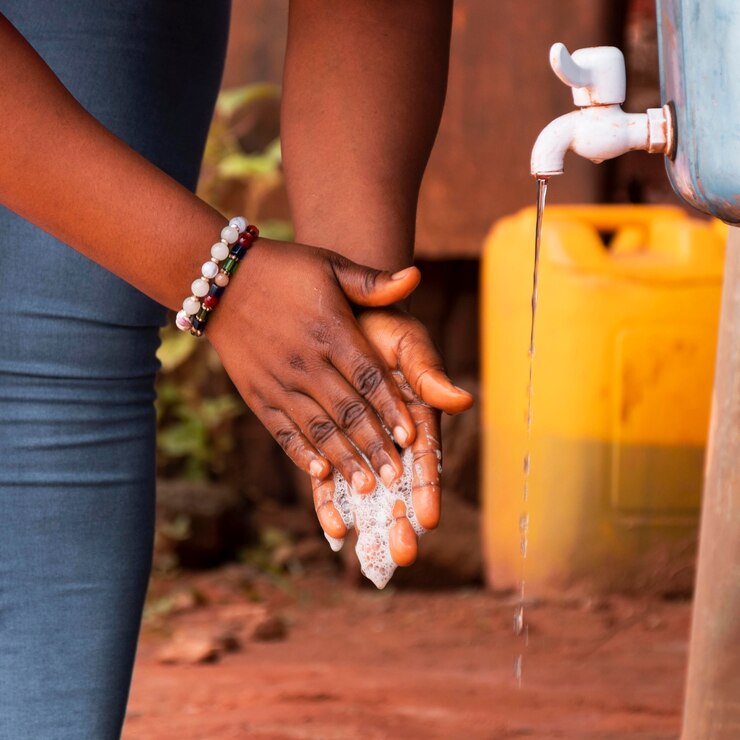The persistence of cholera outbreaks in Zambia is a pressing issue that demands proactive measures and urgent attention. Cholera is an acute, diarrheal illness caused by infection of the intestine with the toxigenic bacterium Vibrio cholerae serogroup O1 or O139, typically ingested through contaminated water or food (1). Its ability to induce severe dehydration can lead to fatal consequences if left untreated, rendering it a significant public health threat, especially in areas plagued by poor sanitation and limited access to clean water (2) .
The World Health Organization (WHO) highlights that cholera is preventable and treatable, emphasizing the importance of implementing robust strategies, including enhancing water and sanitation infrastructure, vaccination campaigns, and fostering community engagement to effectively combat the disease. Studies have been strongly linked to poverty and inadequate access to clean water, making it a significant public health concern, particularly in developing countries (3) (4).
Zambia, like many other developing nations, grapples with recurrent cholera outbreaks, inflicting significant harm on its populace. Despite strides in medical science and public health, the persistence of cholera outbreaks in Zambia highlights shortcomings in response effectiveness and the absence of proactive strategies. The current cholera outbreak, initiated in October 2023, has exacted a severe toll, ranking among the worst recorded, with over 600 fatalities and more than 18,000 cases.
Recognizing the inadequacy of reactive approaches, the Zambian government and its partners developed the Zambia Multisectoral Cholera Elimination Plan 2019-2025. This comprehensive strategy outlines six pillars, including leadership and coordination, surveillance, case management, community engagement, and large-scale use of Oral Cholera Vaccine (OCV).
Among these pillars, improving WASH solutions emerges as paramount. Without addressing it, the effectiveness of other pillars is compromised. Prioritizing improvements in WASH curtails the root causes of cholera transmission, leading to a reduction in reported cases. WASH interventions serve as preventive measures against cholera by providing clean water sources, promoting proper sanitation practices, and interrupting the cycle of transmission at its source. This comprehensive approach not only prevents cholera but also mitigates the spread of other waterborne diseases, contributing to overall community well-being and long-term public health sustainability.
The recurring nature of outbreaks in the country indicates a lack of sustained efforts to improving WASH solutions and prevent future occurrences, impacting various aspects of society, including education. Past outbreaks, such as the one in 2017/2018, resulted in significant disruptions to daily life, including delayed school re-openings, closure of markets and trading places, and the removal of street vendors to control cholera spread. These measures led to immediate effects such as reduced trading hours, loss of customers, capital, and income for small businesses.
Research has revealed the significant influence of drainage networks on cholera outbreaks in Lusaka, Zambia, highlighting the interconnection between drainage infrastructure and WASH initiatives (5). Areas with limited coverage of drainage networks, particularly densely populated areas like Kanyama and Chipata compound in Lusaka District, experience higher incidences of cholera. Insufficient drainage infrastructure not only hampers proper sanitation but also impedes access to clean water, exacerbating the difficulty in containing the spread of cholera. This shows the crucial role of improving WASH services to combat waterborne diseases like cholera effectively.
The persistence of cholera outbreaks in Zambia is a grave public health concern that demands a proactive, comprehensive, and sustained response. The time has come for Zambia to break free from the cyclic clutches of cholera outbreaks and embrace a proactive approach to public health. It is imperative that the Zambian government, in collaboration with international health organizations and other stakeholders, prioritizes the development and implementation of sustainable, evidence-based solutions to prevent and control cholera. This should mainly focus on investing in clean water and sanitation facilities, particularly in overcrowded localities, including infrastructure development, this will ensure the health and well-being of the Zambian population.
Authored by: Mwaka Hachisaala, Operations Manager
References
-
Centers for Disease Control and Prevention. (2023). Cholera – Vibrio cholerae infection. General information. https://www.cdc.gov/cholera/general/index.html#one
-
World Health Organization (2023). Cholera. https://www.who.int/news-room/fact-sheets/detail/cholera
-
Cowman, G., et al. (2017). Factors associated with cholera in Kenya, 2008-2013. Pan African Medical Journal, 28(1), pp.156-156.
-
Kone-Coulibaly, A., et al. (2010). Risk factors associated with cholera in Harare City, Zimbabwe, 2008. East African journal of public health, 7(4).
-
Sasaki S, et al (2009). Impact of drainage networks on cholera outbreaks in Lusaka, Zambia. Am J Public Health. 2009 Nov;99(11):1982-7. doi: 10.2105/AJPH.2008.151076. Epub 2009 Sep 17. PMID: 19762668; PMCID: PMC2759778.


